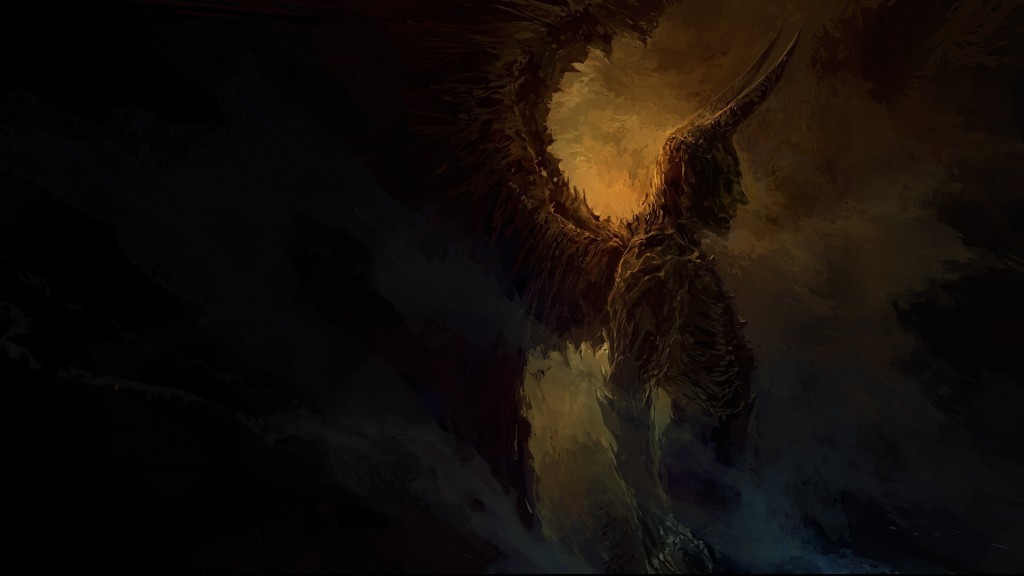
The Bible does not say much about different types of demons. But, over the years, various writers of theological works have developed various classifications for demons as well as other information about them. One of the oldest is the pseudepigraphicalTestament of Solomon. During the Middle Ages, written works dealing with demons multiplied, and demons were often classified based on the sins they promoted or other activities they engaged in. For instance, each of the “seven deadly sins” was said to have a specific demon behind it.
The Bible is the only reliable source of information about demons, and the information it contains about them is sparse. The Bible says nothing directly about classifications or kinds of demons. Jesus mentions a unique “kind” of evil spirit in Matthew 17:21, but He does not name it. Much of the information we have about demons is simply inferred from biblical passages in which they play a role. Christian ministries that focus on deliverance from demons place more emphasis on them than the Bible does.
A detailed but highly speculative demonology has sprung up in some religious and Charismatic circles. Various evil spirits are dubbed as “Jezebels,” “pythons,” “Delilahs,” “mermaids,” “Absaloms,” etc. None of this is biblical. Scripture gives no specific classes of demons or that Christians today have the gift of rebuking or exorcising them. That being said, Angels do have a hierarchy which suggest a possibility that demons may have a hierarchy of their own.
Perhaps the most extensive passage on spiritual warfare is in the New Testament, Ephesians 6:10–18 (concerning the full armor of God), mentions that “For we wrestle not against flesh and blood, but against principalities, against powers, against the rulers of the darkness of this world, against spiritual wickedness in high places.” However, the emphasis here is on the weapons God provides for victory; there is no mention of techniques to bind or cast out the evil forces. While some see the beings mentioned (rulers, authorities, powers, and spiritual forces) as different classifications of demons, in some instances the extent of those conclusions may be reading into the text more than it is telling us.
From the biblical evidence, we infer that demons are fallen angels that followed Satan when he rebelled. Revelation 12 says that dragon (Satan) swept one third of the stars from heaven.
“And the great dragon was cast out, that old serpent, called the Devil, and Satan, which deceiveth the whole world: he was cast out into the earth, and his angels were cast out with him.” Revelation 12:9
Likewise, in Matthew 25, Jesus says that on Judgment Day He will say to some people..
“Then shall he say also unto them on the left hand, Depart from me, ye cursed, into everlasting fire, prepared for the devil and his angels:” Matthew 25:41
This means that the demons are fallen angels who fell when Satan did, and that demons are “angels” in the basic sense that they are Satan’s “messengers” (the literal meaning of the word angel).
With certainty we can say that demons are the messengers or minions of Satan. The word demon is not used in the Old Testament (although evil spirits are mentioned), but by the time of the New Testament, Jewish theologians had done a lot of speculating about them. The concept of demons or evil spirits was also common in other religious thought at the time. The gospels assume that much of what was thought about demons at the time is true. We see Jesus casting out demons (e.g., Matthew 8:28–33), and we see that they are often responsible for causing physical illness, which Jesus healed by casting out the demon (e.g., Matthew 9:33). Paul tells us that demons are behind the worship of pagan gods and that a sacrifice to an idol is really a sacrifice to a demon (1 Corinthians 10:19–20).
Whenever there are gaps in our knowledge, it is natural to want to fill them in. However, in the case of knowledge of demons, most of the “filler” information is unfounded and sometimes lurid speculation. We know that demons are evil spirits who, in concert with and following the directives of Satan, war against God and mankind. It is accurate to think of them as counterparts to the holy angels that minister to people on God’s behalf. We know that they have been defeated in principle by Christ on the cross and that their final destination will be eternal torment in a place prepared for them (Matthew 25:14).